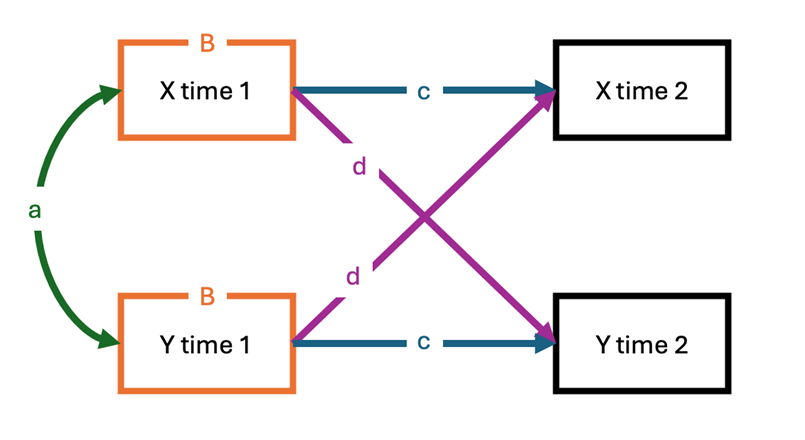
Next in the A-Z series is Y for Youth Awards, a programme that allows researchers to build community connections by inviting young people from local secondary schools to learn more about the work done at the IoPPN.

Next in the A-Z series is Y for Youth Awards, a programme that allows researchers to build community connections by inviting young people from local secondary schools to learn more about the work done at the IoPPN.

Researchers interested in longitudinal processes can use a range of statistical models to examine how variables are associated over time. One approach often used to examine reciprocal – or bidirectional – associations between variables is the cross-lagged panel model.

Elisavet and Iona, PhD students in the EDIT Lab, write about women’s mental health in the perinatal period and the current interventions available.

Alicia Peel and Meg Skelton describe their experiences of the PhD viva in the UK, having both passed theirs last year. What is a viva? A viva is an examination of your thesis, where you are asked questions to demonstrate that your work meets the…

In our previous blog post ‘U is for Underrepresented Groups in Mental Health Research – Part 1’, Grace described the causes and implications of underrepresentation of LGBT+ individuals and ethnic minorities in mental health research. Now, she will discuss how these problems may be overcome. …

In this blog Grace, our MSc placement student, discusses the causes of underrepresentation in mental health research and why it needs to be resolved. THE PROBLEM In the UK, the LGBT+ community face higher suicide rates (NHS England, 2020), black adults are 5 times more…

Evidence-based psychological treatments are now widely available within the NHS. In this blog, we explore the profound impact and potential of the Talking Therapies programme in effectively managing common mental health disorders. Anxiety and depression are common mental health conditions that affect a significant…

Next in the ‘A-Z’ series is S for Sexual Orientation. Higher rates of psychological distress among sexual minorities is not due to shared genetic influences. In this blog, Kunle looks at applying genetic research designs to investigate the links between sexual orientation and mental health difficulties. …

Reflecting on an interest gained during his MSc, EDIT Lab PhD student Tim explains what reproducibility is, what contributes to non-reproducibility, how the scientific community set about fixing it, and what the future holds for the quality of scientific output.

Iona, our newest 1+3 EDIT Lab student discusses what qualitative research is, why we need it and what we can we learn from it. What is qualitative research? In a world increasingly full of statistics, graphs and numbers, qualitative research provides a different way to…
Recent Comments